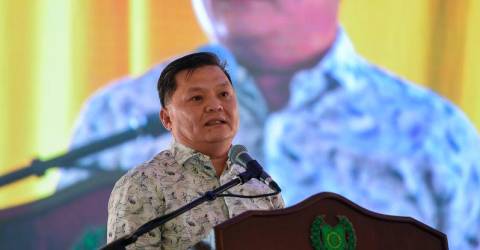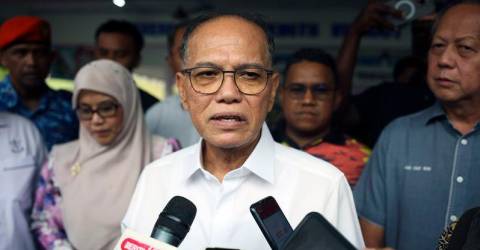ADVERTISE HERE
Agriculture, an ancient industry, is currently facing various challenges in the modern era, including those posed by climate change and technological disparities. In Sarawak, a significant contributor to the region’s GDP and employment, the agricultural sector stands at a crucial juncture. This is where smart farming can bring about a revolution, leading Sarawak towards sustainable and advanced agriculture, and making it more resilient and robust to future challenges.
Smart Farming, also known as Precision Agriculture, involves the integration of modern information and communication technologies (ICT) into agriculture. By leveraging advancements from the Fourth Industrial Revolution, such as IoT devices, artificial intelligence (AI), drones, and blockchain, Smart Farming aims to improve the quality, quantity, and sustainability of agricultural production.
Imagine drones gently buzzing above paddy fields, diligently monitoring the health of each sprout, ensuring they grow to their fullest potential. The Post-COVID-19 Development Strategy (PCDS) 2030 is not just a policy document; it serves as Sarawak’s roadmap to a future where farms embody resilience and sustainability.
Amidst the challenges brought by the global pandemic and conflicting powers, Sarawak may discover its silver lining in Smart Farming. By tackling food security issues, unstable crop yields, and the waning interest of the youth in farming, Smart Farming illuminates the path forward.
It promises a future where technology complements rather than replaces traditions, resulting in enhanced yet sustainable agricultural practices that safeguard Sarawak’s self-sufficiency and stability.
The Sarawak government has actively pursued Smart Farming initiatives. Efforts such as the proposed development of the Tarat and Semenggok SARTECH (Sarawak Agro-Technology Park) demonstrate a commitment to integrating technology into the region’s agricultural fabric.
This commitment is further reinforced by initiatives focused on capacity-building among farmers and agropreneurs, the establishment of precision farming parks, and strategic investments in the processing and marketing of agricultural products. However, it is crucial to recognize that the realization of a truly transformative Smart Agriculture landscape in Sarawak relies not solely on top-down approaches.
The farmers, who form the foundation of agricultural output, must reciprocate and intertwine with these technological and infrastructural advancements. By doing so, they co-author a future where technology and traditional farming practices merge to define a new era of agricultural prosperity in Sarawak.
In regions with close-knit communities like Sarawak, the power of social influence and shared experiences cannot be overstated. Success stories of early adopters have the potential to sway entire communities towards embracing new and innovative farming techniques, as witnessed in the widespread adoption of the “Sufficiency Economy Philosophy” in Thailand’s rice-growing regions.
For instance, the Tourism Authority of Thailand (TAT) invited wellness bloggers and influencers to participate in its latest Global Media/Blogger Farm Trip as part of the “Amazing Thailand Health and Wellness Tourism New Chapters New Experience” project. By showcasing the practical application of smart farming technologies and techniques through their content, these influencers inherently provide a platform that promotes and validates these practices.
Through vlogs, blogs, and social media posts, they communicate the practicality, benefits, and necessity of adopting smart farming methods to Thai farmers. This content garnered a significant following and engagement.
Emulating Thailand’s successful model, where influencers shed light on the merits of smart farming to a broad audience, Sarawak finds a compatible blueprint given its close-knit communities and the convergence of traditional and innovative approaches in agriculture.
Both regions share strong communal bonds, respect for traditional agricultural wisdom, and a willingness to embrace innovations for improved yields and sustainability. Leveraging influencers to showcase the harmony between smart farming technologies and traditional practices has the potential to accelerate adoption in Sarawak.
Success stories and practical benefits will spread through interconnected communities. This approach not only enhances local practices but also highlights Sarawak’s sustainable and technologically advanced agriculture on a global scale, aligning economic aspirations with sustainable development.
In Sarawak, the adoption of Smart Farming holds immense potential, promising to usher in a new era of agricultural productivity and sustainability. Bridging the technological and knowledge gaps is crucial for the seamless integration of cutting-edge advancements into the region’s agricultural practices.
This is where higher education institutions like Swinburne can play a significant role. Beyond providing conventional education and technological support, these institutions can serve as avenues for research and development of innovative smart farming technologies, including hardware and software prototypes.
Additionally, by leveraging academic insights into market trends and consumer behaviours, these institutions can creatively contribute to the effective marketing of agricultural products, ensuring that the benefits of enhanced productivity are fully realized.
Engaging directly with Sarawak’s farming communities, and returning to the grassroots, ensures that the integration of Smart Farming is not solely a top-down approach but deeply embedded within local practices and knowledge.
Harnessing social influence can be a valuable strategy in Sarawak, where communal ties and shared experiences hold great importance. These influencers can significantly shape perceptions and accelerate the adoption of innovative farming technologies and practices.
Addressing farmers’ concerns, such as potential financial barriers, technology adoption, and fears of eroding traditional practices, must be at the forefront of the Smart Farming transition strategy.
By crafting an actionable blueprint that includes comprehensive training, hands-on experiences, and robust support structures, the government, in collaboration with the private sector and educational institutions, can pave the way for not only a technologically advanced but also a socially and economically sustainable agricultural future in Sarawak.
This inclusive, empathetic, and forward-thinking approach is pivotal in realizing the full potential of Smart Farming, propelling Sarawak towards agricultural self-sufficiency and establishing it as a significant player in the global food export market.
Dr Gabriel Wee Wei En
School of Business
Faculty of Business, Design and Arts
Swinburne University of Technology Sarawak Campus
The views expressed here are those of the writer and do not necessarily represent the views of the New Sarawak Tribune.

 1 year ago
196
1 year ago
196



 English (US) ·
English (US) ·